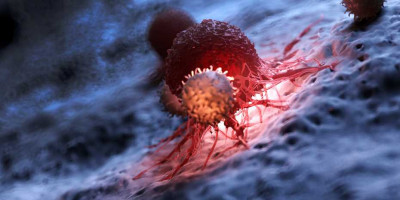
In a small, phase II study of a very rare cancer that develops inside a woman’s uterus during or after pregnancy, treatment with avelumab potentially cured 8 out of 15 women with cancer that was resistant to single-agent chemotherapy.
This is the first trial exploring use of immunotherapy in patients with gestational trophoblastic tumours (GTT) and suggests that avelumab may be a new therapeutic option for these patients.
The results will be presented in the virtual scientific program of the 2020 American Society of Clinical Oncology (ASCO) Annual Meeting.
"This proof-of-concept study shows that treatment with the immunotherapy avelumab works against these tumours when resistance to single-agent chemotherapy develops,” said lead author Benoit You, MD, PhD, who is a medical oncologist at Centre Hospitalier Lyon-Sud and Lyon Investigational Center for Treatments in Oncology and Hematology in France. “Although more evidence is needed before changing clinical practice, these are highly promising results, suggesting that avelumab could prevent patients with chemo-resistant disease from the severe toxicity of chemotherapy combinations.”
GTTs are abnormal growths in the uterus that develop from placenta produced during conception.
Avelumab is a checkpoint inhibitor, a type of immunotherapy that blocks a protein (PD-L1) on cancer cells that helps them hide from the body’s immune system.
GTT overexpresses PD-L1, making avelumab a reasonable alternative for these tumours.
Key findings
The majority of trophoblastic tumours relapse within 6 months, if not within the 12 months after treatment discontinuation.
In this study, 8 of 15 patients (53%) with GTT that was resistant to single-agent chemotherapy methotrexate or antibiotic actinomycin-D had no sign of disease relapse at 29 months follow-up.
If disease has not relapsed after 12 months and monitoring of human chorionic gonadotropin (hCG) has concluded, researchers consider the patient cured.
The hormone hCG is used as biomarker for GTT.
Seven patients achieved normal levels of hCG during treatment with avelumab, and one had normalisation after discontinuation of avelumab.
Disease in these patients has not relapsed after 29 months follow-up, and normal levels of hCG has been maintained.
One patient who was successfully treated with avelumab later went on to have a healthy pregnancy.
It was the first report of a normal pregnancy after a curative treatment with an immunotherapy agent.
Avelumab resistance was observed in the remaining seven patients (47%), requiring chemotherapy with actinomycin-D or polychemotherapy with/without surgery.
Side effects were generally mild, with 93% of patients having grade 1-2 drug-related adverse events. Fatigue was the most common (33% of patients), followed by nausea and vomiting (33%), and infusion-related reactions (27%). “Drug tolerance was much better with avelumab than with chemotherapy,” said Dr You.
About the study
This multi-site study included 15 patients (median age 34 years) with GTT that was resistant to mono-chemotherapy; 47% were stage III with metastases.
All patients had progressed on treatment with methotrexate; one patient had also progressed on actinomycin-D.
Patients received avelumab until hCG levels returned to normal, followed by three additional cycles.
Next steps
The researchers are now conducting a similar trial for avelumab in the first-line setting, before resistance to therapy can develop, treating low-risk tumours with methotrexate and avelumab.
Source: ASCO
The World Cancer Declaration recognises that to make major reductions in premature deaths, innovative education and training opportunities for healthcare workers in all disciplines of cancer control need to improve significantly.
ecancer plays a critical part in improving access to education for medical professionals.
Every day we help doctors, nurses, patients and their advocates to further their knowledge and improve the quality of care. Please make a donation to support our ongoing work.
Thank you for your support.